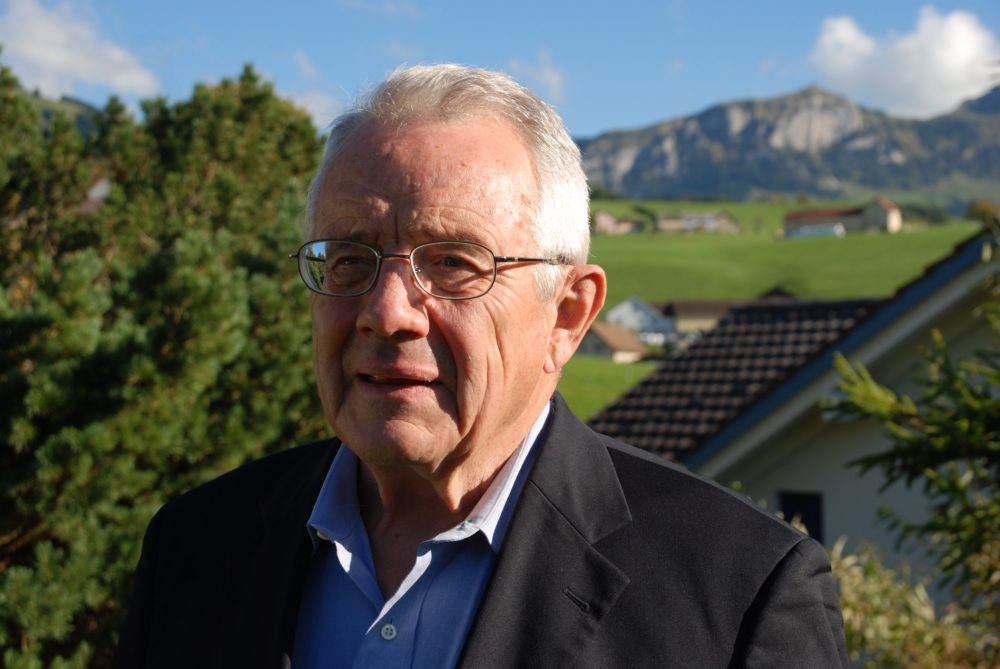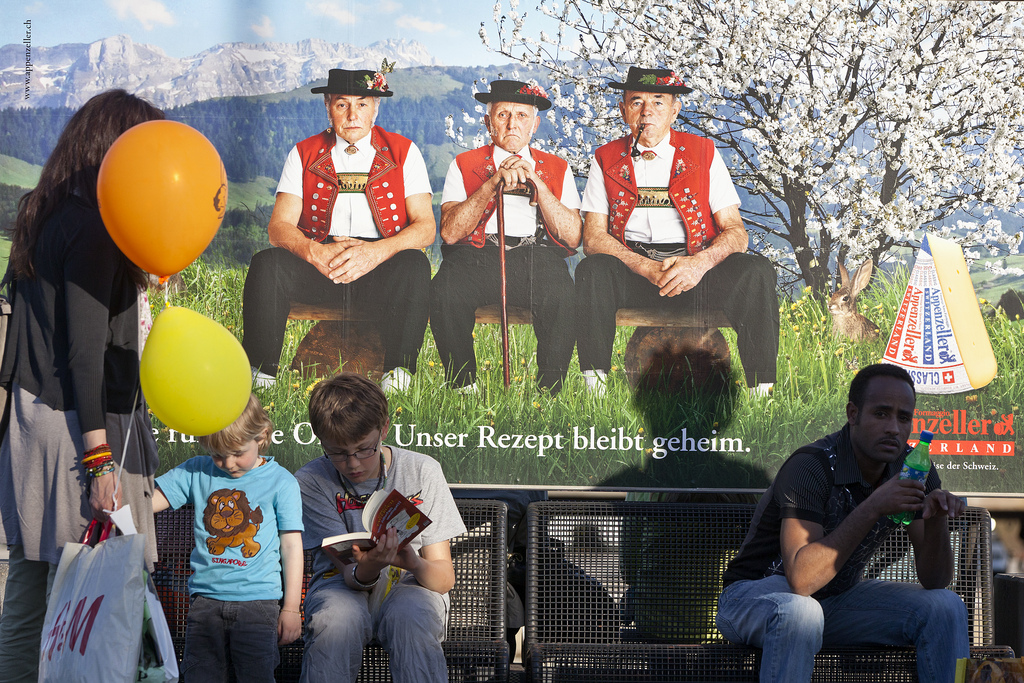Town square voting: All pomp or pure democracy?
The Swiss canton of Appenzell Inner Rhodes has the oldest form of direct democracy. But how democratic is it really?
Once a year in Appenzell, the golden helmets are polished, the big flags with the family crests are hung and the black robes are dusted off, all for the “most important day of the year” – the so-called “Landsgemeinde”, an open-air assembly where voters get together to have their say in public.
The smell of grilled sausages hangs in the air as the snowflakes fall, alongside the scent of traditional hazelnut cakes made just for the event. Citizens flood the narrow streets of the 6,000-person town.
All roads lead to the Landsgemeinde plaza in the centre of town. Here, for centuries, Appenzell residents have decided on cantonal issues and elected their local representatives by simply raising their hands. Is this democracy in its most direct form? Or is it a fossil being preserved with much folklore?
Origins in the Middle Ages
There are many theories about how the Landsgemeinde came about. In his just-published dissertation, Hans-Peter Staub of Bern’s Institute for Political Science compared it to a ballot box system.
“For a long time, people thought that the Landsgemeinde came from German folk gatherings, but now the prevailing theory is that such gatherings began in the Middle Ages as cooperatives,” he says. At the time, cooperatives would have involved groups of people who farmed the same land.

More
Voting day: Roland Inauen, cantonal leader
The band starts to play as presiding officials march in. The six men and one woman approach the centre of the plaza with slow, heavy steps. They climb up to the “chair”, as the stage is known. It’s not just used for this event – the stage is available for all town business.
On the same page
“Giving everyone a voice is the Landsgemeinde’s biggest democratic strength,” says Staub. In this way, key questions can be answered and all voting citizens can be brought up to speed on the issues.
“With the ballot system, the discussion mostly happens in the media,” Staub explains, adding that it tends to be a shielded conversation that not everyone can participate in. Another of the Landsgemeinde’s strengths lies in its multidimensional decision-making options. Voters don’t just choose “yes” or “no”, but can also reject certain elements and suggest referendums.
Today, the proceedings move quickly as the city council and cantonal court members are elected, four legislative reforms are adopted and one citizen’s initiative regarding the school system is rejected.
No voter secrecy
One key difference to a ballot system is that here, participants see how the people around them are voting. Everyone knows everyone. And this, says Staub, is the Landsgemeinde’s greatest weakness.
“Voter secrecy – one of the most important fundamentals of a democracy – isn’t safeguarded,” he points out.
Because this lack of vote secrecy also goes against the terms of the European Human Rights Convention, Switzerland had to insert an exceptional clause regarding the Landsgemeinde when ratifying the legislation.
Can public votes affect people’s political decisions? According to Staub, “the Landsgemeinde has long been perceived to turn out more politically right-leaning results”. This impression has been kept up by events like in 1990, when Appenzell Inner Rhodes did not want to give women the vote on a cantonal level, yet again.
But, Staub adds, such voting systems have also turned out progressive decisions in recent years.
“For that reason, we can conclude that the Landsgemeinde system doesn’t favour any particular political leaning.”
Besides the lack of voter secrecy, the system used in Appenzell struggles with low turnout.
“On average, 10-15% fewer people participate in the Landsgemeinde than in a ballot vote,” Staub says.
Addressing weaknesses
Still, on this day, a huge crowd of people is gathered in the town square – though maybe it just seems that way because many visitors from around Switzerland are sitting at bars and restaurants nearby, watching the event. Even though such democracy by assembly is on the decline when placed in a historical context, the Landsgemeinde is a nationwide institution, more loved than ever, as Staub has noticed.
It’s especially experienced a strong surge in popularity among rural communities, he says, noting that it’s more than folkloric nostalgia.
“We have found that the Landsgemeinde is not less democratic than the ballot system,” he concludes. But if the system is to survive, its weaknesses need to be addressed. The political scientist sees particular potential in finding solutions for keeping the votes secret using technology, or ideas for how to attract more voters to the annual event.
Have you ever participated in the Landsgemeinde?
Translated from German by Veronica DeVore

In compliance with the JTI standards
More: SWI swissinfo.ch certified by the Journalism Trust Initiative



You can find an overview of ongoing debates with our journalists here. Please join us!
If you want to start a conversation about a topic raised in this article or want to report factual errors, email us at english@swissinfo.ch.